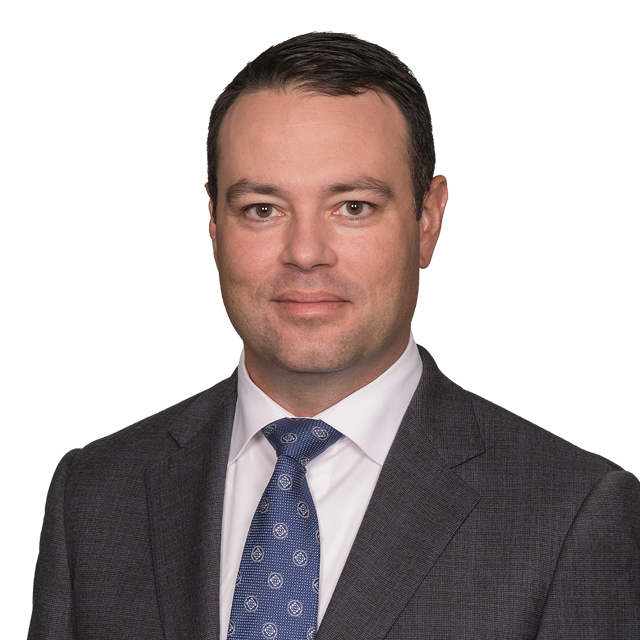Corporations Canada has launched public consultations on proposed regulations under the Canada Business Corporations Act (CBCA) related to recent amendments to the CBCA regarding executive compensation and the well-being of employees, retirees and pensioners.
Under Bill C-97, An Act to implement certain provisions of the budget tabled in Parliament on March 19, 2019 and other measures, which received Royal Assent on June 21, 2019, the CBCA was amended by:
- requiring prescribed corporations to hold non-binding shareholder advisory votes on executive compensation to facilitate conversations about more balanced executive compensation schemes in certain cases (known as say-on-pay);
- requiring prescribed corporations to report on policies that pertain to workers' and pensioners' interests, and the recovery of certain incentive-based compensation to provide more market oversight and encourage conversations about factors impacting corporate strategy and decision-making processes (often called clawbacks); and
- clarifying that corporate directors may consider employee and pensioner interests in their decision-making, to encourage directors to take a more comprehensive approach to assessing the long-term interests of the corporation.
However, before the amendments to the CBCA can come into force, certain details in the proposed regulations require clarification. Accordingly, Innovation, Science and Economic Development (ISED) is seeking feedback and suggestions from stakeholders on the following points:
- which corporations will be subject to the new obligations;
- the definitions of "members of senior management", "retirees" and "pensioners";
- the time and manner for disclosing the results of the say-on-pay vote;
- information that needs to be disclosed to shareholders regarding clawbacks; and
- the information to be disclosed to shareholders about the well-being of employees, retirees and pensioners.
Issue A: Prescribing the Corporations That Are Subject to the New Obligations
Distributing corporations, which are publicly-traded CBCA corporations, are intended to be subject to the amendments to the CBCA. Given the scope of the amendments, which corporations will be subject to them and what, if any, exemptions may apply, are important questions. ISED is seeking input on whether distributing corporations should be subject to the new obligations under the CBCA amendments.
Issue B: Prescribing the Definitions of “Members of Senior Management”, “Retirees” and “Pensioners”
Members of Senior Management
The term "members of senior management" is referred to in the current diversity and disclosure provisions of the CBCA. The Canada Business Corporations Regulations defines "members of senior management" as:
- the chair and vice-chair of the board of directors;
- the president;
- the chief executive officer and chief financial officer;
- the vice-president in charge of a principal business unit, division or function, including sales, finance or production; and
- an individual who performs a policy-making function in respect of the corporation.
ISED proposes to use this definition in relation to the new obligations under the amendments regarding say-on-pay and clawbacks. As such, input is sought on whether stakeholders agree with this proposed definition of "members of senior management" under the new obligations and whether stakeholders have other suggestions or comments in relation to this definition.
Retirees and Pensioners
"Retirees" and "pensioners" are not currently defined in the CBCA. ISED proposes the following definitions for "retiree" and "pensioner":
[A] "retiree" - person who has concluded their working or professional career with a corporation, and receives or will receive post-employment benefits other than a pension from that corporation.
[A] "pensioner" - person who receives regular payments from a corporation from a fund accumulated during that person's employment with that corporation, or a spouse or dependents of such a person receiving the payments after the person is deceased.
The aim of the definitions is to distinguish between ex-employees who receive a pension (pensioners) from those who receive other benefits (retirees). A person may be both a retiree and a pensioner, or only one. Both definitions are used in relation to the disclosure to shareholders of information on the well-being of employees, retirees and pensioners under the amendments. The intent is for the proposed disclosure to cover both a pension received from a corporation as well as other benefits received by employees and retirees, such as health or life insurance.
ISED is seeking feedback on whether stakeholders agree with the proposed definitions of "retirees" and "pensioners" and whether stakeholders have other suggestions or comments in relation to these definitions.
Issue C: Prescribing the Time and Manner for Disclosing the Results of the Say-on-Pay Vote
The amendments to the CBCA require corporations to develop approaches regarding the remuneration of directors and senior management. The new section 125.1 of the CBCA reads:
A prescribed corporation shall develop an approach with respect to the remuneration of the directors and employees of the corporation who are "members of senior management" as defined by regulation.
The corporation's approach to compensation is to be put to a non-binding shareholder vote at the corporation's annual meeting. Say-on-pay votes are common practice globally, with both the United States and United Kingdom mandating them in prescribed circumstances. Further, many Canadian companies—notably, the major banks and certain other senior reporting issuers—already hold say-on-pay votes voluntarily. However, the mechanics of disclosing the results of say-on-pay votes differ between jurisdictions. The CBCA amendments will require results to be disclosed in the following manner:
- reporting the results at the meeting itself;
- posting the results on the corporation's website no more than 30 days after the meeting; and
- setting out the results in the next annual general meeting's management proxy circular.
ISED is seeking feedback on this proposed approach to the time and manner of disclosing the results of say-on-pay votes. For reference, in the United States, pursuant to the Securities and Exchange Commission's (SEC) rules, say-on-pay votes must be disclosed within four business days after the shareholder meeting at which the vote is held.
Issue D: Prescribing the Information That Needs To Be Disclosed to Shareholders About the Recovery of Incentive and Other Benefits
The CBCA amendments would require disclosure to shareholders regarding the recovery of incentives and other benefits from directors and members of senior management in certain circumstances (often referred to as clawbacks). New section 172.3 of the CBCA reads:
The directors of a prescribed corporation shall place before the shareholders, at every annual meeting, the prescribed information respecting the recovery of incentive benefits or other benefits, which is included in the remuneration referred to in section 125, paid to directors and employees of the corporation who are "members of senior management" as defined by regulation.
Similar to say-on-pay votes, clawback legislation providing for the recovery of undeserving incentive payments or other compensation exists in some form in the United States and certain other jurisdictions. Some groups within Canada, such as the Canadian Coalition for Good Governance, have advocated for the adoption of clawback policies by issuers for some time.
The CBCA amendments propose that information to be disclosed to shareholders regarding any clawback policy adopted by the issuer include:
- a comply-or-explain provision requiring the corporation to state whether it has a written policy regarding clawbacks and, if it does not, why it has not adopted a policy; and
- if the corporation has a policy, a summary of same, including its objectives and key provisions such as (a) which incentives and benefits are covered, (b) what triggers a clawback and whether it is discretionary, (c) the period in which clawbacks may be required, (d) who makes the decision that a clawback is needed; and (e) information on clawbacks made in the previous fiscal year.
ISED is seeking input regarding whether additional information should be disclosed or if items on the current proposed list should be excluded.
Issue E: Prescribing the Information That Needs To Be Disclosed to Shareholders About the Well-Being of Employees, Retirees and Pensioners
The CBCA amendments will also require boards to put information about the well-being of employees, retirees and pensioners before shareholders at annual meetings. New section 172.2 of the CBCA reads:
The directors of a prescribed corporation shall place before the shareholders, at every annual meeting, the prescribed information respecting the well-being of employees, retirees and pensioners.
In theory, this will motivate boards to consider the interests of these stakeholders in their decision-making. Further, the annual requirement is meant to provide ongoing oversight and accountability regarding the interests of the corporation's human resources.
The prescribed information in the above provision is proposed to include the following:
- a comply-or-explain section requiring the corporation to state whether it has adopted a written policy relating to the well-being of employees, retirees and pensioners and if not, why; and
- if the corporation has such a policy, a summary of it, including (a) the policy's objectives and key provisions, (b) activities taken pursuant to the policy, (c) the corporation's progress in achieving the policy's objectives; and (d) whether the corporation measures the policy's effectiveness and how.
Whether this amendment reflects changing Canadian demographics or codifies the expansion of stakeholder groups from BCE Inc. v 1976 Debenture Holders, corporations subject to the CBCA will likely have to begin collecting additional information about stakeholders to comply with its requirements. ISED is seeking submissions about whether additional information should be disclosed or whether any of the information currently proposed to be disclosed should be excluded.
Participation in the Public Consultation
Written submissions regarding the above issues for consultation may be sent to Corporations Canada until March 31, 2021. Bennett Jones would be pleased to discuss the issues with you, and assist in preparing a submission.























